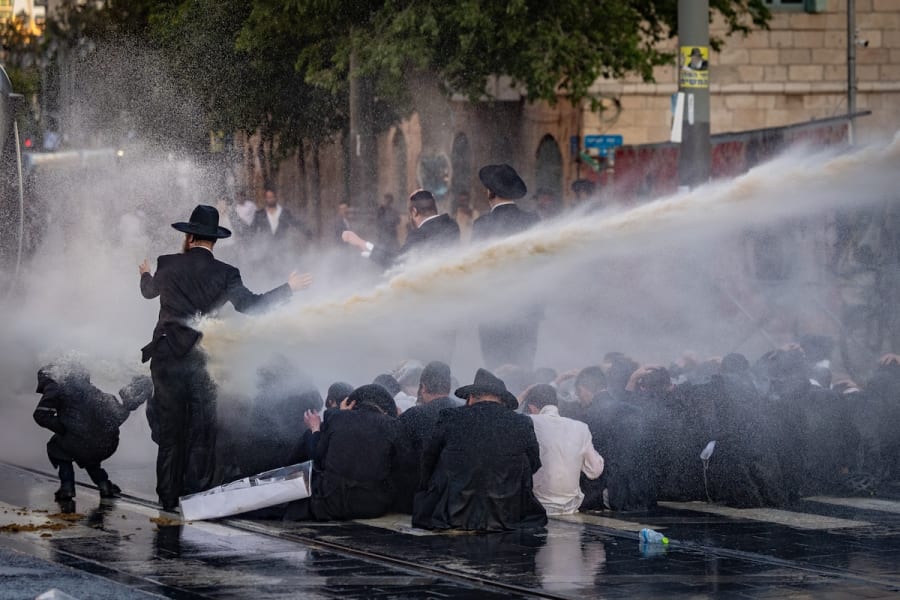Ultra-Orthodox IDF draft crisis spirals beyond reason as Israeli government faces collapse

The government has yet to reach agreements regarding the conscription law, and the discussions between Foreign Affairs and Defense Committee Chair Yuli Edelstein, Cabinet Secretary Yossi Fuchs, and the ultra-Orthodox (Haredi) representatives have not led to any significant progress. At the end of the meeting, Haredi leaders called for the dissolution of the Knesset and the collapse of the government.
From a rational perspective, there is no reason for the government to collapse now. The Haredi parties, which are key partners in the coalition, aren’t supposed to want that. It’s “not in their interest.” A government collapse at this time could hurt them in two major ways: financially and publicly.
The financial damage stems from the fact that a fallen government means budget freezes and a significant reduction in the "transfer" funds from which the Haredim benefit. The public damage is that going to elections while the conscription crisis is still raging – during wartime, no less – will only highlight the rift with the Haredi public without offering any solution.
Still, this outcome cannot be ruled out, given that current dynamics within the Haredi community are unfolding in ways that do not align with conventional political reasoning.
In recent months, large numbers of young Haredim have begun avoiding the draft, making them subject to legal enforcement by the military and the state. Haredi leadership currently lacks the means to effectively support them, as it has neither the legislative tools nor a clear path to passing a new conscription law. These individuals are no longer just potential recruits – they are now facing legal and institutional challenges without clear guidance or support.
In this vacuum – without a solution, without a clear message, without a horizon – a political decision may arise that is irrational. A decision born out of frustration and helplessness, under public pressure, maybe even out of political survival. Because the Haredi public is asking questions, and if the leadership doesn’t provide answers, it’s in trouble.
While the government’s collapse is unlikely based on logic, numbers, or interests, developments within Haredi society appear increasingly detached from traditional political calculations.
The combination of political frustration and public pressure can lead to decisions that depart from conventional political logic, making previously unlikely outcomes more feasible.
Government stability can be undermined not only by internal leadership struggles but also by escalating public unrest that exceeds the system's capacity to contain it.

Michael Shemesh is a political correspondent for KAN 11 news.
You might also like to read this:














